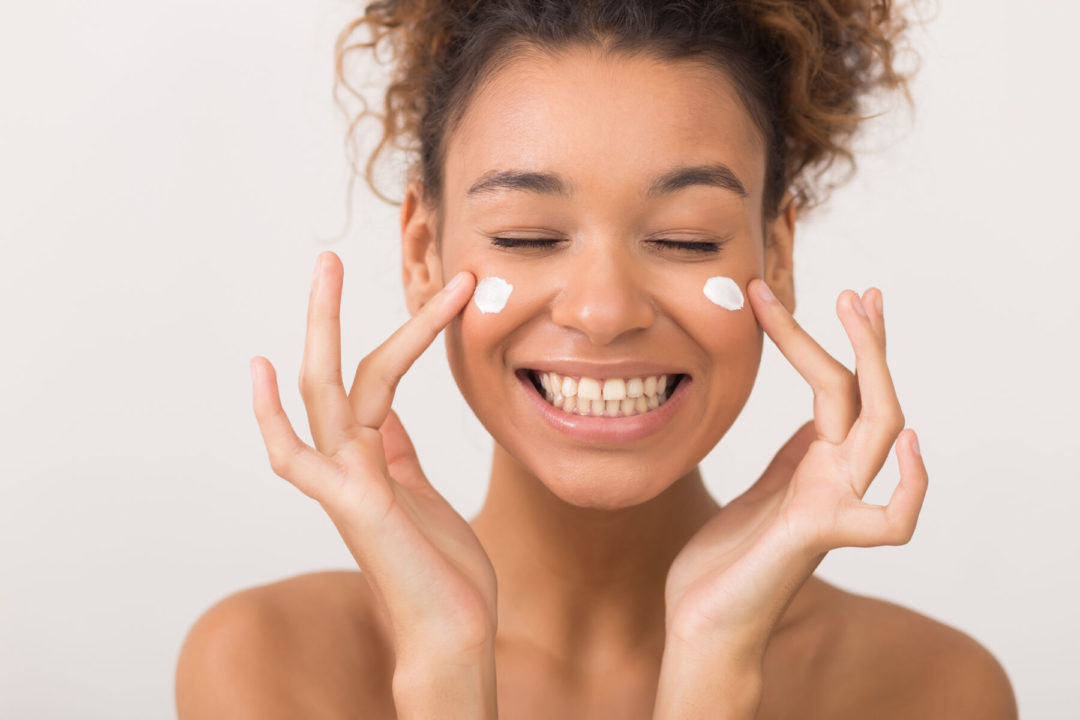A Broader Definition of Beauty
How many products do you stock that are labeled for “normal” hair or skin? That number is about to drop. “From skin care to soap, shampoo, and more, our beauty and personal care brands are removing the word ‘normal’ from advertising and packaging, all over the world,” Unilever announced in a press release. In a survey of 10,000 people across nine countries, seven in 10 said that the world “normal” on beauty product packaging has a negative effect on people, a figure that rises to eight in 10 among those age 18 to 35. 56% of those surveyed said that the beauty and personal care industry can make people feel excluded; more than 70% said that the beauty and personal care industry must broaden its definition of beauty; and 74% of those surveyed said they want to see the beauty and personal care industry focusing more on making people feel better, rather than just look better.Part of this, Unilever stated in the release, is that participants wanted to see a more inclusive range of people reflected by beauty and personal care brands in terms of ethnicities, races, genders, body types, age groups, and people from the LGBTQIA+ community.
“With one billion people using our beauty and personal care products every day, and even more seeing our advertising, our brands have the power to make a real difference to people’s lives,” said Sunny Jain, President of Unilever Beauty & Personal Care, in the release. “As part of this, we are committed to tackling harmful norms and stereotypes and shaping a broader, far more inclusive definition of beauty. We know that removing ‘normal’ from our products and packaging will not fix the problem alone, but it is an important step forward. It’s just one of a number of actions we are taking as part of our Positive Beauty vision, which aims not only to do less harm, but more good for both people and the planet.”
There’s also space here for a nutri-beauty perspective, one that Lycored has been creating for quite some time now with the company’s #rethinkbeautiful movement. Dr. Karin Hermoni, Lycored, explains: “A big part of this movement is inspired by the fact that ingestible skincare and nutrition don’t see skin color, race, or age. They only see us at the cellular level, offering a liberating platform for inclusivity and equality.” For instance, Lycored’s research has found that 72% of consumers feel that a key goal is a “healthy glow”—and both health and a glow are offered through nutri-beauty. For more on that, check outNutri-Beauty: Look Good = Feel Good, in the May issue ofWholeFoodsMagazine.
3 Top 2021 Trends
- Desire for truly healthy formulations. “Everybody has been about viruses, germs, sickness, and immune systems since COVID hit the stage,” says Alex McIntosh, Co-founder and CEO of Thrive Natural Care. “Many of our core customers were always healthy living fiends, but over the past year, we’ve seen the wider consumer audience become increasingly ingredient-focused, and they want to know what’s in their products. Not surprising, given all we’ve been through.”
- More focus on skin health, and less on “mascara face.” “We’ve all been outside of our normal routines for over a year: less gym, less outside time, less in-person time with relatives and family and work colleagues,” says McIntosh. “More stress, more Zoom, and more time stuck at home. Sales of mascara have fallen sharply. While Thrive is unisex, our female customers in particular have focused more on skincare and haircare products over makeup because they aren’t going out as much, and when they do, they wear a face mask, so not much makeup is needed. However, sales of skincare, particularly natural skincare, have flourished. Our skincare business grew 50% last year, despite all the challenges of the pandemic. Customers wanted products that would help sensitive skin and maskne, and reduce impacts of stress and irritation.
- Community care, instead of personal care. “We’ve had a sharp uptick in old and new customers contacting us and sharing with us how much they appreciate our regenerative mission to ‘leave people and places healthier,’” McIntosh shares. “Particularly our impact on restoring degraded lands and boosting lives of rural farmers. Perhaps COVID exposed our real connectedness. Our customers have been more vocal over the past year about using their wallets as their voice. If they have a choice between buying a face wash that’s fairly generic and one that will give back, they want to go that extra step and support brands with a cause.” Thrive is aiming to be “a commercially viable regenerative model for global fisheries, forestry, mining, and agriculture industries,” McIntosh says, and as part of this, the company is moving its full line into 100% plant-based or 100% recycled packaging.
Tips for Retailers
Balance big and small brands.While big brands might be what customers initially go searching for, as those are the products that customers know, McIntosh tellsWholeFoodsthat “we hear again and again from our customers that they are hungry for innovative, authentic, mission-driven brands to buy their products from. If a retailer can keep both on their shelves, whether virtual or brick and mortar, the retailer is essentially opening their door to a much wider and potentially more engaged customer base.” Not to mention, of course, that while a bigger brand can be found at any conventional supermarket, you may be the only local place to purchase a smaller brand, driving customer loyalty. Thrive’s products contain active ingredients including Juanilama and Fierrillo, Costa Rican plants that McIntosh says are unique to the line.Practice transparency. “Customers appreciate honesty, and while they may not be shopping in-stores as much, they are still shopping online, and appreciate transparency with the retailers they are purchasing from and the brands these retailers carry,” McIntosh concludes. “They want to learn more about the story behind the brand.”WF









